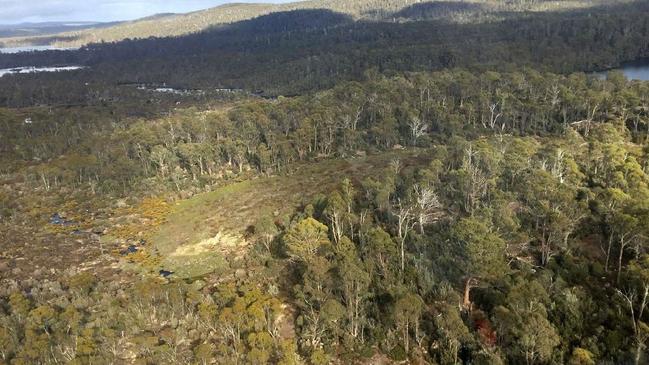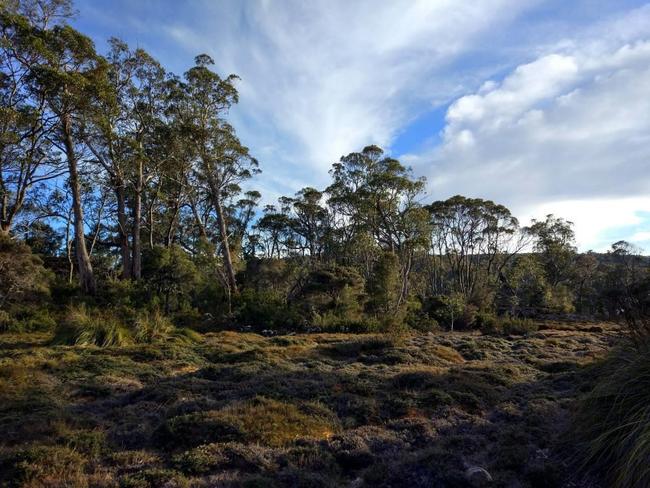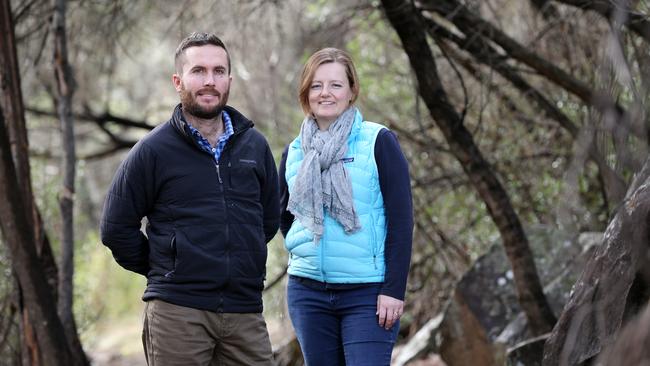Development application lodged for Malbena pods plan
A proposed luxury tourism development within the Walls of Jerusalem National Park will have four semi-permanent buildings on the island the proponents privately lease.

Tasmania
Don't miss out on the headlines from Tasmania. Followed categories will be added to My News.
DOCUMENTS lodged with the Central Highlands Council for a proposed luxury tourism development within the Walls of Jerusalem National Park show the couple behind the project want to erect four semi-permanent buildings on the island they privately lease.
New detail has emerged on the controversial Lake Malbena project after Wild Drake owners Daniel and Simone Hackett submitted their development application to the council.
GALLERY: HALLS ISLAND STANDING CAMP PROPOSAL
Greens senator Nick McKim said the application realised his “worst fears for Lake Malbena”.
But Mr Hackett said it proved his development was “very, very small in scale as promised”. The plans show the pair want to build three accommodation pods on Halls Island, each with a shower and toilet, as well as a communal pod, which will accommodate each tour’s guide. The pods would have a combined floor space of about 64m2.
“The camp can be easily removed if the need arises,” the documents said.
The documents reiterate the pair will run 30 tours of six people per year. Visitors will be flown to the site by helicopter, usually from Derwent Bridge to the Central Plateau Conservation Area, with each tour requiring up to eight flights.
Helicopters will only operate in the area 60 days of the year, the document said, and follow a particular path that would avoid iconic fishing waters and eagles’ nests.

The development has earned the ire of conservationists, fishers and walkers, all of whom gathered at Great Lake Hotel last night to discuss their response to the proposal.
Senator Nick McKim, who attended the meeting, said: “The DA confirms that there will be four buildings on Halls Island, not a standing camp as claimed by Mr Hackett.
“This is wilderness privatisation of the worst kind, facilitated by a secretive EOI process which deliberately locks out the public.”
The Parks and Wildlife Service and Aboriginal Heritage Tasmania said the project fell within their guidelines and the state and federal governments had previously given their go-ahead.
The Wilderness Society will challenge the Federal Government’s approval process in the Federal Court in March.

Mr Hackett said it was a “big relief” to get the development application to the council, which represents the final stage of approval.
“We look forward to receiving public comments,” he said.
“We’re confident it fits in the planning schemes.”
According to the development application, tour activities would include kayaking, hill-walking, bushwalking, cultural interpretation, wildlife viewing, “occasional fishing” and citizen science field trips with science, art and culture experts.
“On-island activities will include continuing with the 60-year history of poetry and art on the island, astronomy, botany, bird watching, and flora and fauna interpretation,” the documents said.
The development application will be on display from tomorrow, with public comment accepted until 4pm on February 4.


